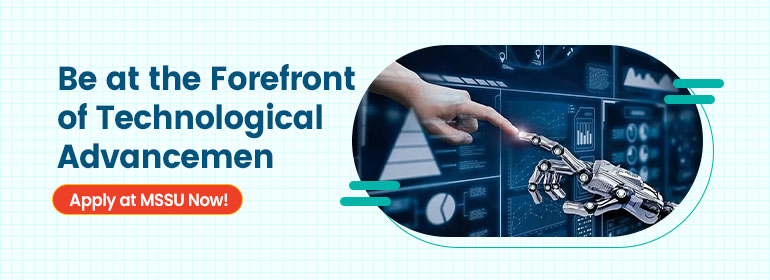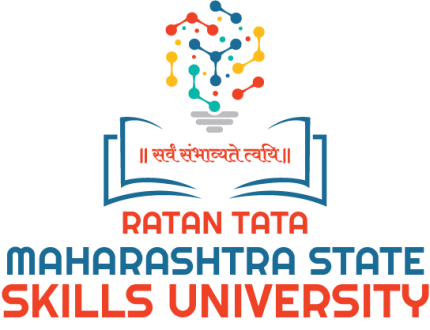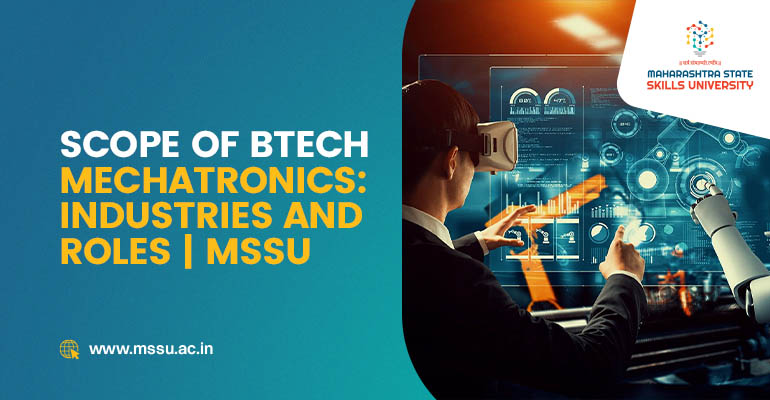Scope of BTech Mechatronics Engineering Amongst Industries
August 12, 2024 2025-07-05 10:27Scope of BTech Mechatronics Engineering Amongst Industries
Combining mechanical, electrical, and computer engineering, mechatronics engineering is a fascinating and quickly expanding discipline. The need for mechatronics engineers who can design and create complex systems is growing as technology continues to advance at a rapid rate. A National Skill Development Corporation (NSDC) research projects that India’s need for mechatronics engineers would increase at a pace of 13% each year. With an annual growth rate of 35–40%, mechatronics engineering is one of the engineering specialties in India that is expanding the quickest, according to research by the Federation of Indian Chambers of Commerce and Industry (FICCI).

India is quickly becoming a center for technological growth and has a wealth of engineering skills. India is positioned to lead mechatronics engineering in the coming years with a strong emphasis on innovation and research. India’s focus on digital transformation is one of the main factors influencing the field of mechatronics engineering there in the future. Mechatronics experts who can develop and implement intelligent systems will be in greater demand as more sectors shift to automation and digitalization.
The emphasis that the Indian government places on funding and advancing technological research and development is another element contributing to the rise of mechatronics engineering in that country. To foster innovation and research, the government has started several projects and programs that are assisting in building a robust environment for the creation of new technology. The development of mechatronics engineering in India is also being fueled by the emergence of Industry 4.0. The need for mechatronics engineers who can design and implement these systems will explode as businesses try to incorporate new technologies like robots, artificial intelligence (AI), and the Internet of Things (IoT).
India’s Potential Careers In Mechatronics
Manufacturing
In today’s industry, where the fusion of mechanical, electrical, and computer engineering is essential, MSSU’s B.Tech in Mechatronics Engineering is essential. Students who complete this program will have the knowledge and abilities necessary to use robots, sophisticated automation, and smart technologies to optimize manufacturing processes. Mechatronics engineers are at the forefront of increasing productivity, decreasing downtime, and boosting flexibility in production environments as Industry 4.0 continues to develop.
Automotive
A B.Tech in Mechatronics Engineering from MSSU provides opportunities for a dynamic and inventive career in the rapidly changing automotive sector. Graduates in this subject have a significant role in the creation of cutting-edge automotive technology, such as autonomous driving systems and electric automobiles. Their ability to work across several disciplines enables them to be involved in the development, testing, and deployment of cutting-edge technologies that guarantee cars are safer, more effective, and ecologically friendly.
Know more about Is a B.Tech in Mechatronics a Good Career Choice?
Aerospace
Students can concentrate on the aerospace sector with MSSU’s B.Tech in Mechatronics Engineering program since mechatronics plays a crucial role in the design and optimization of aircraft systems. Students get a thorough grasp of drone technology, flight control systems, and aerodynamics, preparing them for professions in an industry where creativity and accuracy are critical. Graduates of this school are prepared to work on everything from space exploration technology to commercial airplanes.
Robotics
The core of MSSU’s Mechatronics Engineering curriculum is robotics, where students study dynamics, kinematics, and control algorithms. The curriculum has a strong emphasis on practical projects that let students create, assemble, and program robotic systems. With an emphasis on creativity and invention, graduates are better equipped to take the lead in the quickly expanding field of robotics, where they may make a difference in anything from consumer robotics to industrial automation.
Healthcare
The MSSU B.Tech in Mechatronics Engineering program provides a special chance to investigate the nexus between technology and healthcare. Students work on projects centered around creating prostheses, robotic surgery systems, and medical gadgets. The program gives graduates the knowledge and abilities to develop and enhance healthcare solutions by covering biological applications, medical imaging, and engineering difficulties in the field of healthcare.
Add this Video https://www.youtube.com/watch?v=simuxBLd6Fo
Consumer Electronics
The curriculum at MSSU incorporates mechatronics with the rapidly growing field of consumer electronics. Students investigate wearable technologies, home automation systems, and smart device design and development. With a focus on sensor technology and Internet of Things applications, the course gives students hands-on experience that equips them to contribute to the next generation of consumer electronics.
Defense
For graduates in Mechatronics Engineering from MSSU, the military industry has special potential. The curriculum offers a thorough grasp of defense applications, with projects centered around the development of cutting-edge weaponry and autonomous surveillance systems. By gaining an understanding of the technology behind contemporary defense systems, students are better equipped for occupations that advance national security.
Biomedical
Students can investigate the biomedical business, where mechatronics is essential to the development of life-saving technology, through MSSU’s B.Tech program in Mechatronics Engineering. The curriculum includes projects that concentrate on more general engineering solutions for healthcare problems as well as biomedical technologies like prostheses and robotic surgical systems. Graduates are ready for careers in the biomedical sciences, where their advancements have the potential to significantly improve patient care.
Energy
Another area that graduates of MSSU’s Mechatronics Engineering program might contribute to is the energy industry. The curriculum addresses energy systems and sustainability, with a focus on smart grid and renewable energy initiatives. Through advancements in energy management and technology, students are prepared to contribute to a sustainable future by learning how to maximize energy-efficient systems.
Metal Fabrication Units
Precision and automation are essential in the metal fabrication industry, and MSSU’s B.Tech. in Mechatronics Engineering program gives students the tools they need to succeed in this profession. Students may improve the accuracy and productivity of metal production operations by studying automation engineering concepts and control systems. Graduates are well-equipped to improve product quality and production speed in the industrial sector by introducing innovative ideas.
IT Companies
The Mechatronics Engineering curriculum at MSSU also provides access to employment in IT firms, where the fusion of hardware and software is becoming more and more crucial. Students gain knowledge of automation, IoT solutions, and the technical integration needed in the IT industry. Graduates with this training can work in jobs involving the creation and application of creative software-hardware integration solutions, which makes them significant assets in the ever-changing tech sector.
Promising Mechatronics Careers In India
Mechatronics Technician
Mechatronics professionals fix and maintain complicated automated machinery so that it operates without human intervention, from producing cells to repairing abms. Typically, this entails developing fresh concepts, organizing new endeavors, drafting blueprints and drawings, building models, collaborating with other mechatronic professionals to produce prototypes, putting them to the test, and troubleshooting them to make the required corrections. The majority of mechatronic professionals create automated equipment to carry out dangerous jobs that would otherwise be completed by humans, such as mining for extraterrestrials or underwater exploration. This blends computerized, electrical, and mechanical operations.
Robotics Engineer
The main focus of this line of work is creating tools and machinery that can do human tasks. Robotics engineers create and build robots and robotic systems, managing their control and functionality using computer systems. An expert in this area aids in the economical development of robotic systems to expedite industrial production operations. Robotics applications may be found in nuclear science, marine exploration, electric signal transmission maintenance, automobile services, biomedical equipment design, and more. You may work in crucial robotics fields including design, R&D, manufacturing, production, safety, and quality with a degree in mechatronics.
Automation Engineer
Automation entails managing and calibrating intelligent machinery by industry standards. When creating automated machinery processes (design, programming, simulation, and testing) to carry out extremely exact tasks, automation experts supervise every step of the process. With automated products and services, they get rid of any flaws and mistakes. To lessen the need for human labor in the production of products and services, they employ information technology and control systems. Your understanding of mechatronics may be practically applied to industrial automation. The automotive and food processing sectors employ this occupation extensively. PLC automation, industrial robots, material handling, and pneumatic systems are among the things an automation engineer may encounter. In the automation industry, you may also be a mechatronics engineer making ensuring the production process runs well.
Instrumentation Engineer
Automated machinery is monitored and controlled by instrumentation engineers. They organize, set up, and maintain the machinery and control systems that are necessary for an organization’s production environment. This task’s control procedures make use of sensors that give information about the machinery being operated. These sensors are integrated by instrumentation experts with transmitters, recorders, displays, and control systems. Instrumentation engineers are essential to the smooth running of a company’s industrial divisions. These engineers are usually employed by corporations, MNCs, petrochemical, pharmaceutical, IT, telecommunication, and manufacturing/chemical facilities, as well as public sector organizations. This is a multidisciplinary position that necessitates a deep comprehension of organizational operating procedures.
Software Engineer
A software engineer develops software using scientific ideas, maintains and enhances it, and uses it to solve a wide range of issues. They construct computer information systems, uphold network security, and produce web pages by putting engineering concepts into practice. Software automation procedures come naturally to a mechatronics engineer with a foundational understanding of coding, version control, design patterns, and unit testing.
Electronics Engineer
Professionals who develop electronic devices, including their particular systems and components, are known as electronic engineers. They maintain safety rules, make user-friendly interfaces, and enhance the design of electrical equipment. To create electronic system plans, assess systems, design and fix equipment, enhance technical performance, create electronic software for commercial use, and check electronics for safety requirements, they analyze client demands. Applying engineering concepts to the interplay of mechanical physics and electronics in automation technologies is one way that a mechatronics engineer might put their abilities to use. Robotics, embedded systems for cars, solar, wind, tidal, and piezoelectric power-generating control systems, and control systems for medical equipment can all fall under this category.
The BTech Mechatronics Program at Maharashtra State Skills University (MSSU)
The Mechatronics Engineering program at MSSU is a cutting-edge curriculum designed to equip students with the multidisciplinary skills needed in today’s rapidly evolving technological landscape. This program focuses on the integration of mechanical, electrical, electronics, computer science, instrumentation, and control systems, providing a comprehensive understanding of these fields. Students are trained to develop novel products and solutions by applying mechatronics principles to real-world challenges.
Eligibility for the program includes a Higher Secondary School Certificate with at least 50% in PCM or equivalent qualifications such as ITI or a Diploma in Engineering/Technology. The program emphasizes hands-on experience, with opportunities for On-the-Job Training (OJT) during the Diploma, BVoc, and BTech courses. Graduates of this program will gain expertise in areas such as material analysis, engineering design and modeling, digital electronic design, Python programming, machine design, and embedded system design. Additionally, they will have the chance to learn a foreign language, enhancing their global employability. The program offers flexible exit points, allowing students to earn a Diploma after two years, a BVoc after three years, or a BTech after four years. This structure ensures that students can tailor their education to their career goals while acquiring essential technical skills.
Conclusion
There are many prospects for engineers in the field of mechatronics engineering in India since the sector has a promising future. Mechatronics engineers are at the vanguard of innovation and technological development, specializing in everything from robots and automation to smart gadgets and self-driving automobiles. The need for qualified mechatronics engineers is expected to rise as the nation invests more in R&D and digital transformation, making this an intriguing industry for prospective engineers to work in.
Frequently Asked Questions
Do employers need mechatronics engineers?
Answer: Yes, there is a demand for mechatronics engineers because they can combine mechanical and electrical talents, which makes them useful in a variety of sectors including manufacturing, robotics, and automation.
What branch is mechatronics useful for?
Answer: Yes, mechatronics—a field that integrates electrical and mechanical engineering—is a promising one that offers a comprehensive method for developing and building intelligent systems. For people who are interested in multidisciplinary topics, it is a suitable option because of its great relevance in the current technological landscape.
After 12th grade, may I pursue mechatronics?
Answer: Yes, you can continue studying mechatronics after graduating from high school by applying to appropriate engineering programs that offer a mechatronics specialization.
Is CSE inferior to mechatronics?
Answer:Both are excellent, but for individuals who want to combine mechanical engineering and electronics, mechatronics may be preferable to CSE because it provides a special combination of interdisciplinary skills that combine computer, electrical, and mechanical engineering for a wider range of applications and career opportunities.



